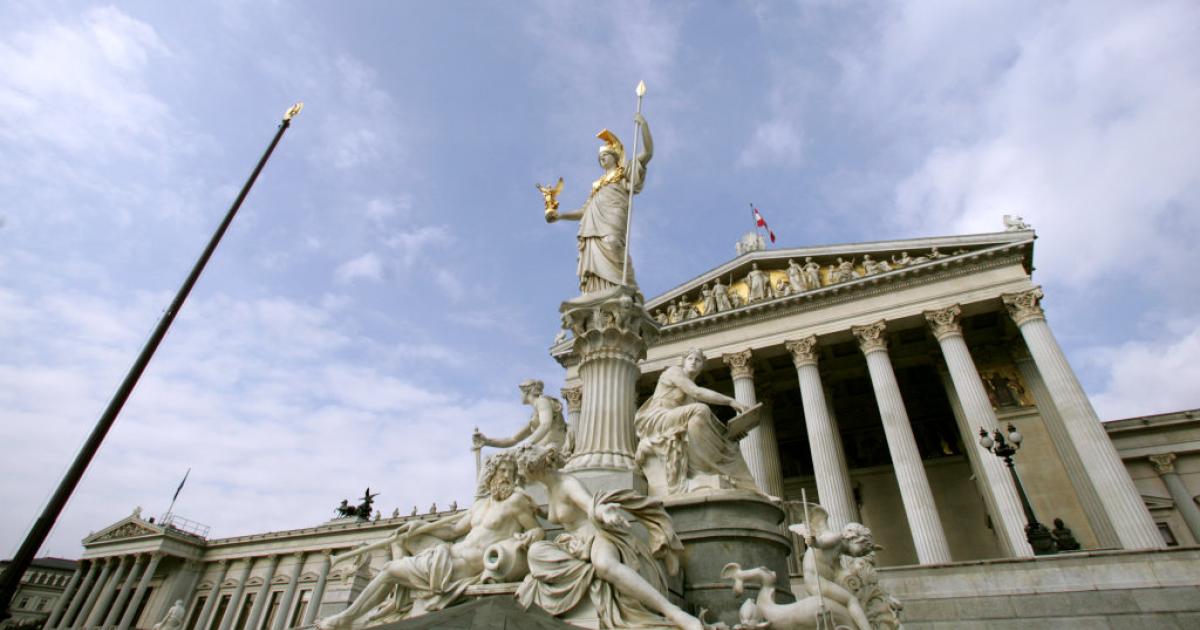the Members of the Austrian National Council Practice in total 255 paid part-time jobs Out of place. A surprising number of MPs also work in domestic politics, parliamentary transparency data assessed by the APA shows.
The self-employed and entrepreneurs are also represented in large numbers. Only then do activities with social partners, political parties and the public service begin. Most of the highest earners are in the ranks of the ÖVP and FPÖ.
The deadline for submitting the last transparency reports before the National Assembly elections ended on Sunday. The statistics are somewhat distorted by the fact that many of the 183 members of parliament have several secondary jobs: 72 deputies find time for two or more paid tasks in addition to their mandate.
Axel Kassegger from the FPÖ and Andreas Minnich from the ÖVP received the most votes with eight. Both are entrepreneurs and run their own companies. Kassegger is also chairman of the FPÖ Education Institute, a member of the Minnich City Council in Korneuburg and an official at the Chamber of Commerce.
A surprising number of National Council members serve in addition to their term. Local politics. A total of 52 people reported either a political mandate or a job at the municipal level. 30 agents reported various freelance activities, 25 of them work in their own companies, and almost half of them are ÖVP MPs.
Then there are 22 paid officials or employees of chambers and unions (mostly from the ÖVP and SPÖ) as well as 15 agents who have a farm. 14 delegates work directly for parties or party companies, 13 of them work in the federal or state service and for other private companies.
Representatives will receive this from the state this year 10,351.39 euros per month. They also have to report once a year how much money they earn and their authorization. To do this, they classify themselves into one of five income categories. The 2023 registration deadline ended on Sunday.
The highest earners are also this time. Freelancers and event managers. Among these are, among others, lawyer and ÖVP Secretary General Christian Stocker as well as notaries Harald Stephan and Volker Reifenberger (both from the FPÖ).
Dell director Karin Doppelbauer (NEOS), ÖVP MP Kurt Egger (General Secretary of the Economic Association) and Alexander Melchior also fall into the top 5 income group with a total of over 12,000 euros per month. He was General Secretary of the ÖVP until the end of 2021 and then joined the Ortner family's company IGO Industries. The only SPÖ MP in this income group is construction and timber trade unionist Jozsef Mucic – a newcomer among the top earners.
However, the majority of salaries in parliament lie in Middle income category 3 (Total 4001 and 8000 euros per month). There are 45 deputies here, including Cassiger and Minich. 33 others have Lower Class 2 (i.e. 1,151 to 4,000 euros), 27 MPs received up to 1,150 euros in addition (category 1) and 50 MPs did not report any additional income at all for the previous year. This also includes the Chairman of the National Council Wolfgang Sobotka and the club presidents, who receive higher salaries and are therefore subject to professional suspension.
Incidentally, government members are also not allowed to hold any part-time jobs. In the Second highest category 4 15 states fall.
the Minimum additional income Show them The greens Out of place. Of the 26 MPs, 16 reported additional income in the lower two categories for 2023. In total, they earn a maximum of €4,000 per month. Eleven other deputies reported no additional income at all.
Only the SPÖ has a greater number of full-time mandates (i.e. 16). Income is reported by 181 of the 183 states – two NEOS MPs who joined the National Council only this year (Sepp Schellhorn and Karl Arlamovsky) are not yet required to report for 2023.

“Total coffee aficionado. Travel buff. Music ninja. Bacon nerd. Beeraholic.”








More Stories
Wealthy families take more risks when it comes to money.
Salesforce and NVIDIA Form Strategic Collaboration to Drive AI Customer Innovation
Changing banks causes problems for customers